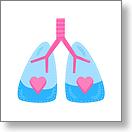If you are a heavy smoker, your body will immediately realize when the chain-smoking cycle is broken. This is because tobacco smoke causes the reactive constriction of blood vessels in the body. When the smoke is removed, the constriction will start to cease, resulting in a lower blood pressure, pulse rate, and body temperature.
After eight hours of living smoke-free, the carbon monoxide levels in your blood will also drop, while the blood oxygen levels will start to normalize (meaning that more oxygen is reaching your cells and tissues). By the end of 24 hours, the nicotine in your bloodstream will have dropped by nearly 95 percent.
Within 3 days of quitting:
Within 48 hours, your taste and smell receptors will start to heal, shifting from their abnormally flattened state to a more normal, rounded configuration. Damaged nerve cells will also self-repair as the insulating membrane, called myelin, gradually rebuilds itself around exposed nerve endings.
Within 2 weeks of quitting:
After the first 72 hours, your peak withdrawal symptoms will noticeably subside, although the cigarette cravings can still persist. In the days and weeks that follow, you should start breathing easier as the air sacs in your lungs (alveoli) begin to relax and produce far less mucus.
By the end of two weeks, your cravings will have reduced in their frequency and duration. While they may not feel any less profound—with minutes often seeming like hours—they'll impact your life far less. By this stage, most ex-smokers will experience no more than two cravings per day.
Within 3 months of quitting:
By week six, most people will have nearly doubled their FEV1. While these improvements may not be as dramatic moving forward, they tend to continue gradually in people with mild to moderate COPD and remain relatively stable for people with severe COPD.
You will also experience improved cardiovascular function and a reduction of inflammatory markers in your blood known as soluble urokinase plasminogen activating receptors (suPAR). A reduction is suPAR corresponds to a generalized reduction in organ damage.
Within 9 months of quitting:
People will often say that they feel a sudden letdown as the physical improvements taper off while the cigarette cravings persist (albeit at a lesser rate).
This doesn't mean that your health isn't continuing to improve. In fact, the tiny, finger-like projections in your respiratory tract, called cilia, will have regrown during the first six to nine month, making it easier to clear debris and mucus from your lungs. While this may actually increase coughing, it is more a sign that your lungs are getting stronger and trying to heal themselves.
As a result, you should start feeling more energized and be able to perform daily activities with less shortness of breath and fatigue.
Within 1 year of quitting:
Your excess risk of coronary heart disease, heart attack and stroke has dropped to less than half that of a smoker.
Within 5 years of quitting:
Your risk of a subarachnoid hemorrhage has declined to 59% of your risk while still smoking. If a female ex-smoker, your risk of developing diabetes is now that of a non-smoker.
Cigarettes contain many known toxins that cause the arteries and blood vessels to narrow. These same toxins also increase the likelihood of developing blood clots.
After 5 years without smoking, the body has healed itself enough for the arteries and blood vessels to begin to widen again. This widening means the blood is less likely to clot, lowering the risk of stroke.
Between 5-15 years of quitting:Your risk of stroke has declined to that of a non-smoker.
After 15 years of quitting:
Your risk of coronary heart disease is now that of a person who has never smoked.
After 20 years of quitting:
After 20 years, the risk of death from smoking-related causes, including both lung disease and cancer, drops to the level of a person who has never smoked in their life. Also, the risk of developing pancreatic cancer has reduced to that of someone who has never smoked.
Your body is wonderful and it is designed to heal itself and it will…if you give it what it needs to carry out the process and STOP poisoning it with the chemicals in cigarettes.
No need to freak out Zaman. Your body has already started the healing process, and you might have noticed some of the changes already, and it's only going to get better as time goes by. Stay on that path to freedom from the NicoDemon!
Stay strong.
Not One Puff Ever
